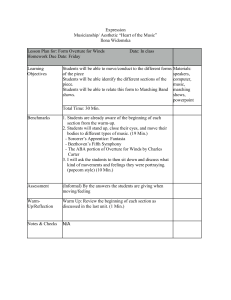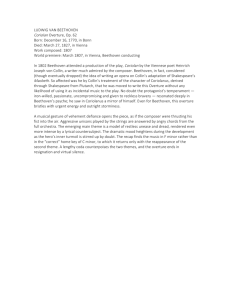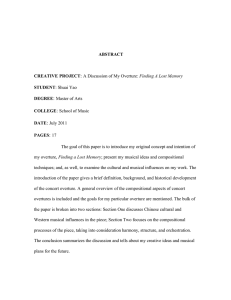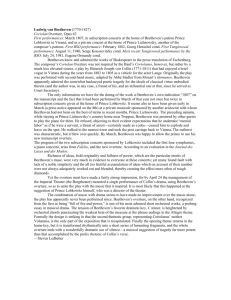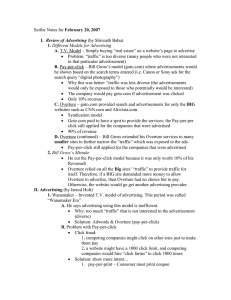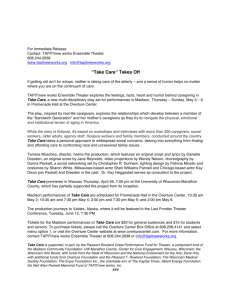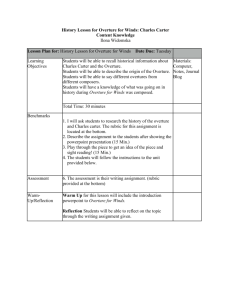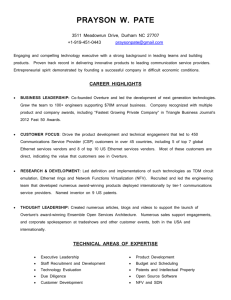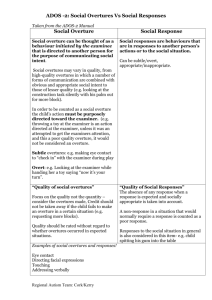Ludwig van Beethoven, Overture Coriolan, Op. 62
advertisement
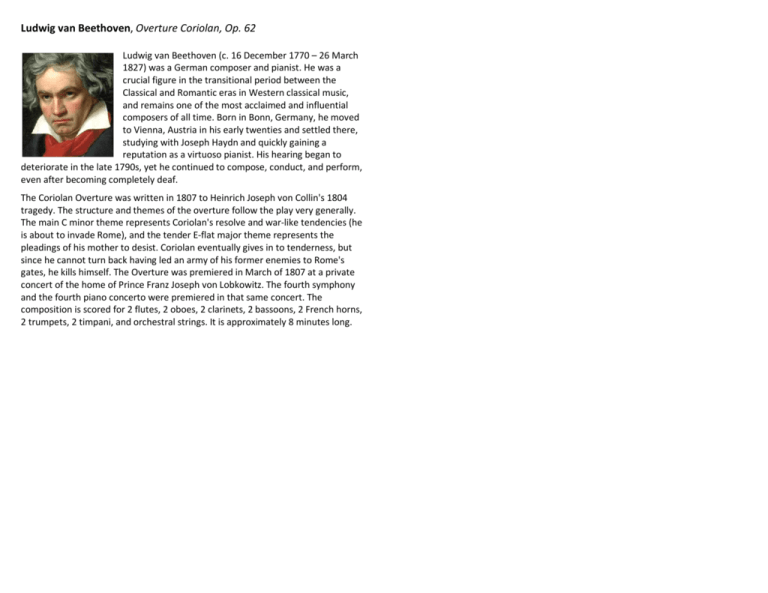
Ludwig van Beethoven, Overture Coriolan, Op. 62 Ludwig van Beethoven (c. 16 December 1770 – 26 March 1827) was a German composer and pianist. He was a crucial figure in the transitional period between the Classical and Romantic eras in Western classical music, and remains one of the most acclaimed and influential composers of all time. Born in Bonn, Germany, he moved to Vienna, Austria in his early twenties and settled there, studying with Joseph Haydn and quickly gaining a reputation as a virtuoso pianist. His hearing began to deteriorate in the late 1790s, yet he continued to compose, conduct, and perform, even after becoming completely deaf. The Coriolan Overture was written in 1807 to Heinrich Joseph von Collin's 1804 tragedy. The structure and themes of the overture follow the play very generally. The main C minor theme represents Coriolan's resolve and war-like tendencies (he is about to invade Rome), and the tender E-flat major theme represents the pleadings of his mother to desist. Coriolan eventually gives in to tenderness, but since he cannot turn back having led an army of his former enemies to Rome's gates, he kills himself. The Overture was premiered in March of 1807 at a private concert of the home of Prince Franz Joseph von Lobkowitz. The fourth symphony and the fourth piano concerto were premiered in that same concert. The composition is scored for 2 flutes, 2 oboes, 2 clarinets, 2 bassoons, 2 French horns, 2 trumpets, 2 timpani, and orchestral strings. It is approximately 8 minutes long.
